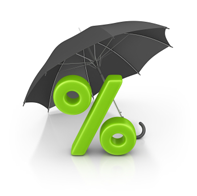Home Electrical Contractor Free Electrical Contractor Business Strategy Questionnaire 8.10 Return on Investment Analysis Questionnaire
8.10 Return on Investment Analysis Questionnaire
 What is the Return on Investment Ratio and what does it mean in the context of a small business like Lights On Electrical, Inc.?
What is the Return on Investment Ratio and what does it mean in the context of a small business like Lights On Electrical, Inc.?
The Return on Investment for a small business like Lights On Electrical, Inc. is the the Earnings before income and taxes divided by the Total Assets employed in the small business by a small business owner like Andy Powell. This is a key profitability measure and it gauges just how well the small business is doing at turning over the investment in the Total Assets made by the owners of the business. This key profitability ratio is looked at very carefully by lenders and potential partners in the small business world and it is important to understand that it has different meanings in different business environments.
Simply put the return on investment is the return ( profit or loss ) you make on the total investment made by you in any situation. Thus if you buy a stock for $100 and sell it for $110, your return on investment is $10. Then from there you can get into how long you held the stock and what your return on investment was at an annual rate and so on. In the small business context, the return on investment annually is the money that the business generates after operating expenses, but before paying income taxes and interest for a given investment in Total Assets.
You can see why this key profitability ratio is so important to a small business, since it summarizes all the hard work done by the business for the entire year and boils it down to what the business is generating for the business owner and others invested in the firm. As a general rule, the higher the Return on Investment the better it is for the business.
Does a declining or low return on investment mean that a small business like Lights On Electrical, Inc. is in trouble?
Not always. A low Return on Investment is very common in the first couple of years for a small business especially those where a large investment in total assets has been made, but nevertheless, it is very important to monitor this ratio, since a declining Return on Investment can most certainly be an indicator of trouble ahead. Even in the case of a new business, a lender or investor would like to see a healthy return on investment after the first year of business to show that the business is taking hold.
In the event a small business like Lights On Electrical, Inc. has been around a while and sees its Return on Investment decline, it can certainly indicate that a couple of things may be afoot - either the Earnings before Income Taxes is declining due to an increase in its cost structure or the Total Assets invested in the small business has gone up. Either ways, a declining Return on Investment will require that a small business owner like Andy Powell take a closer look under the hood to understand why things are not the way they should be.
If the analysis shows that the reason for the declining Return on Investment has to do with an decrease in the Earnings before Income Taxes, then the business owner will need to understand just what has caused that decrease. It could be:The cost of goods sold has gone up resulting in the small business facing a higher cost of inputs and a reduction in the gross margins.The operating expenses of the business have gone up resulting again in higher costs for operating the business.
Once the root cause has been determined, Andy Powell will have to take action to try and remedy the situation by either finding a cheaper alternative to
procure the raw materials at better prices and / or reduce the operating expenses of the business by cutting costs. This is a typical business decision faced every day by small businesses and that is why it is very important to understand the implications of this key profitability ratio.
In those situations where the Asset Turnover ratio is declining due to an increase in the Total Assets, a small business owner like Andy Powell may have to consider if the business has been aggressive enough in raising prices to be able to cover the new assets that have been deployed. Of course being competitive is also very important and as always a balance has to be struck between the price increase and the possible loss of a competitive position. A new laser being purchased at a Dental Office which gives the office an unique edge over its competitors must be met with a special fee or higher prices charged by the firm to be able to cover the higher total fixed asset investment.
Does having a high Return on Investment give a small business like Lights On Electrical, Inc. a competitive edge?
Yes it does. If a small business like Lights On Electrical, Inc. has a higher return on investment that its competitors, it means that it is able to turn it’s the investment made in the assets by the firms owners and partners more efficiently that its competition. This of course gives it all kinds of advantages. Being more profitable makes it easier for a small business like Lights On Electrical, Inc. to raise capital with greater ease than the competition. It also gives the business the ability to reduce its prices and go after market share since other competitors are not able to turn their assets over as efficiently and will not be able to match up by dropping their prices as competitively.
Having a high Return on Investment also gives a small business like Lights On Electrical, Inc. the ability to take advantage of weaker competitors by buying them out when they are having a tough time and are not able to make their bills. There is nothing sweeter than buying an existing business with a large invested Fixed Asset base on the cheap!
Having a high return on investment also makes a small business like Lights On Electrical, Inc. very attractive to the competition who may be looking to expand their business by buying a competitor. A high return on investment ensures that the buyer of the business will be ahead of the game since the business is already generating enough in sales. Small businesses with higher return on investments will always carry a higher premium when it comes time to sell the business, than business that are not as profitable.
Quick Links:
- Go to the Corresponding Template section for this industry.
- Go to the Corresponding Business Plan section for this industry.
Small Business Owner Resource Center

Articles on the Small Business Financing Sources, the Small Business Loan Basics, small business loans Checklist and SBA Loans are incredible sources of knowledge for the small business owner.

Credit Report and Credit Score Analysis, how to Read a Personal Credit Report and all about Business Credit cover the intricacies of credit and are required reading for everybody.

The Foundation Grant Directory is a free listing of sources for grants by state. Why not look if there is some free money out there for your business. Hey - you never know!

The Business Loan Application covers every item you will need in your loan package and tells you how to get approved for business loans.

Fire your loan broker and use our Free Business Loans Bank / Lender Directory to find every bank in the country lending to small businesses.

If you are looking to start a business - look no further. Check out the Free Incorporation Guide discussion and the State Incorporation Resource Directory.




